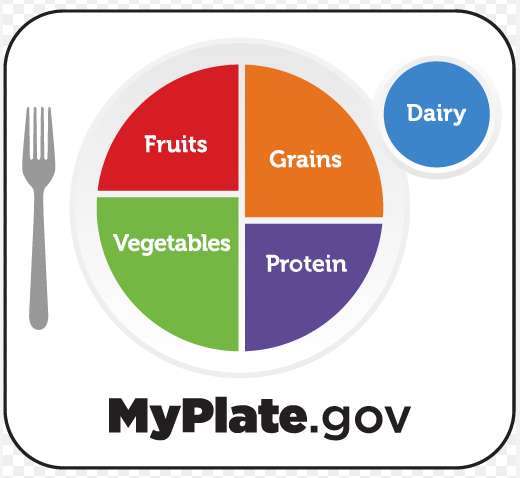Live Well Allegheny: January 2023 E-Update
Happy New Year! This is the latest Live Well Allegheny e-update. It is full of information that will help in making Allegheny County healthy for all. This can also be shared with your own networks.
We have 350+ partners united in our efforts to make Allegheny County healthy for all!
Be sure to like and follow the Allegheny County Health Department on Facebook and Twitter to stay up-to-date on all ACHD news.
A Letter From Our Deputy Director
Happy New Year from the Health Department!
Have you made a New Year’s resolution? If so, it’s important to start small. Small steps done consistently bring big results. Here are some tips for your New Year’s resolutions:
- Add color to your plate by including fruits and vegetables with every meal
- Include a 10-minute walk outside over your lunch break
- Schedule your annual checkup
Please enjoy this month’s Live Well Allegheny e-update. We have a lot of information to share.
Warm regards,
Dannai Wilson
Deputy Director
Bureau of Community and Family Health
Allegheny County Health Department
Live Well, Be Well
Nutrition Tips for 2023
If one of your goals for 2023 is to eat healthy, check out the MyPlate Quiz!
Get a snapshot of how you’re doing on food groups and get a personalized list of resources. MyPlate is a visual tool that models a healthy diet.
For more resources visit MyPlate.gov.
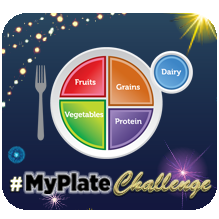
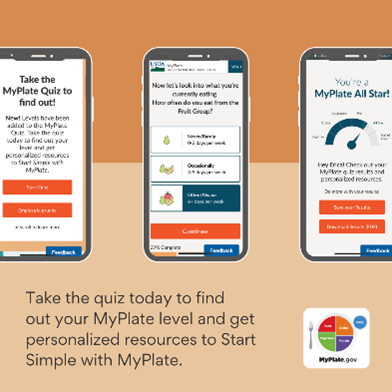
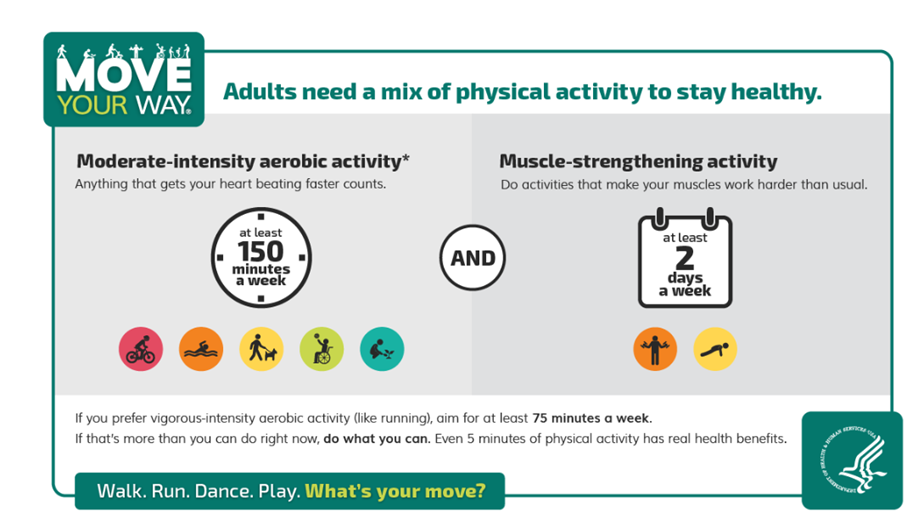

Playful Pittsburgh Collaborative Needs Your Feedback
The Playful Pittsburgh Collaborative is seeking participants to understand how caregivers, educators, childcare professionals, and youth in Pittsburgh currently play.
Learn more about Playful Pittsburgh Collaborative.
Live Well Partner Resources
Women for a Healthy Environment Receives Grant from U.S. Department of Housing and Urban Development
This grant allows Women for a Healthy Environment (WHE) to identify and enroll 130 households into a program that delivers proven interventions aimed at improving the health outcomes of children with asthma. Interventions may include repairing or replacing leaking roofs, windows, and downspouts; installing bathroom and dryer vents and dehumidifiers; removing carpeting and replacing with hard flooring; sealing holes and walls to eliminate pest infestation.
Additional grant components include community and household education, technical assistance, and workforce development.
Check your eligibility status.
For more information about the program go to the WHE website.

Women for a Healthy Environment Receives Grant from U.S. Department of Housing and Urban Development
This grant allows Women for a Healthy Environment (WHE) to identify and enroll 130 households into a program that delivers proven interventions aimed at improving the health outcomes of children with asthma. Interventions may include repairing or replacing leaking roofs, windows, and downspouts; installing bathroom and dryer vents and dehumidifiers; removing carpeting and replacing with hard flooring; sealing holes and walls to eliminate pest infestation.
Additional grant components include community and household education, technical assistance, and workforce development.
Check your eligibility status.
For more information about the program go to the WHE website.

January Health Observances
Glaucoma Awareness Month
Glaucoma is the leading cause of irreversible blindness. Those at higher risk include people of African, Asian and Hispanic descent.
Other high risk groups include:
- People over 60
- Family members of those already diagnosed
- Diabetics
- People who are severely nearsighted
If you fall into one of the above categories, it’s important to schedule and attend regular eye exams.
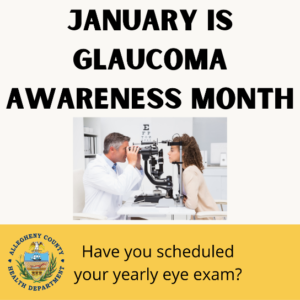
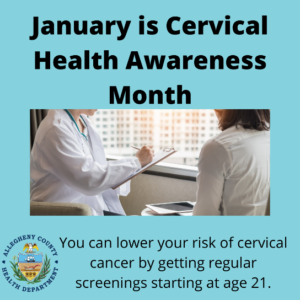
Cervical Cancer Awareness Month
Cervical cancer is a type of cancer that occurs in the cells of the cervix, the lower part of the uterus that connects to the vagina. Human papillomavirus or HPV, is almost always the cause of cervical cancer.
The risk of cervical cancer can be lowered by regular screenings and getting the HPV vaccine. The HPV vaccine can be obtained at most health care providers and at the ACHD’s Immunization Clinic.
Health Department Updates

2022 Live Well Allegheny Learning Collaborative Feedback Survey
We would appreciate the feedback from our 2022 Live Well Learning Collaborative. If you participated in any of the events, please complete this survey.
If you or your organization would like to be a speaker for the 2023 speaker series, please email Victoria Baker at victoria.baker@alleghenycounty.us
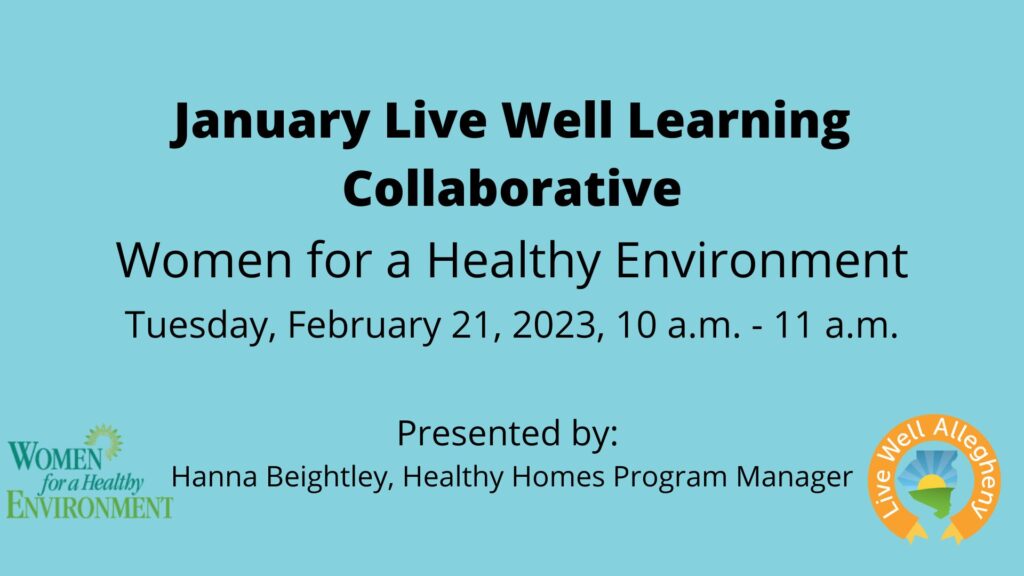
2023 Live Well Speaker Series February Event: Women for a Healthy Environment
Join us for the February Live Well Allegheny Learning Collaborative Virtual Speaker Series on Tuesday, February 21, from 10-11 a.m.
Women for a Healthy Environment will be presenting on the Healthy Homes Program. Register to attend the Zoom session here!
If you have any questions for the speaker, send them to victoria.baker@alleghenycounty.us.
Women, Infants, and Children (WIC) Program launches new app for recipients
WICShopper is an app that helps WIC participants shop with their benefits. It allows them access to real-time benefits with product scanners, custom food lists, recipe ideas and alerts about possible food recalls. The app is available on Apple App Store and Google Play Store.

Chronic Disease Spotlight
According to the CDC, six in 10 adults in the U.S. have a chronic disease and four in 10 adults have two or more chronic diseases. Each month this section will highlight a common chronic disease and provide educational resources.
Chronic Kidney Disease
Chronic kidney disease, also known as chronic renal disease or CKD, is a condition characterized by a gradual loss of kidney function over time. Chronic kidney disease includes conditions that damage people’s kidneys and decrease their ability to keep themselves healthy by filtering wastes from their blood. If kidney disease worsens, wastes can build to high levels in the blood and make people feel sick. Individuals may develop complications like:
- High blood pressure
- Anemia
- Weak bones
- Poor nutritional health
- Nerve damage
Chronic Kidney Disease in Allegheny County
In Allegheny County, 22 percent of Medicare beneficiaries were treated for chronic kidney disease based on 2019 data. The data also shows a higher prevalence of chronic kidney disease in the county’s male population at 25 percent compared to the female population, whose rate is 20 percent.
Risk Factors for Chronic Kidney Disease
Factors that can increase someone’s risk of chronic disease include:
- Diabetes
- High blood pressure
- Heart disease
- Smoking
- Obesity
- Family history of kidney disease
- Abnormal kidney structure
- Older age
- Frequent use of medications that can damage the kidneys
Live Well Partner Resource: National Kidney Foundation
National Kidney Foundation Brochures – The National Kidney Foundation has a variety of brochures available for people with kidney disease. Topics vary from general information about kidney disease, health issues, lifestyle tips, nutrition information, organ and tissue donation, end of life care, and treatments for kidney failure. Brochures are also available in both English and Spanish.

